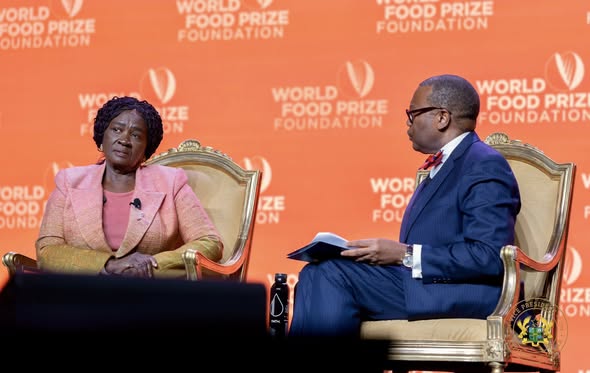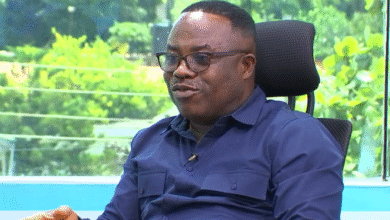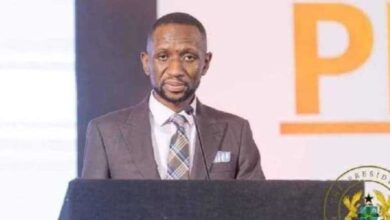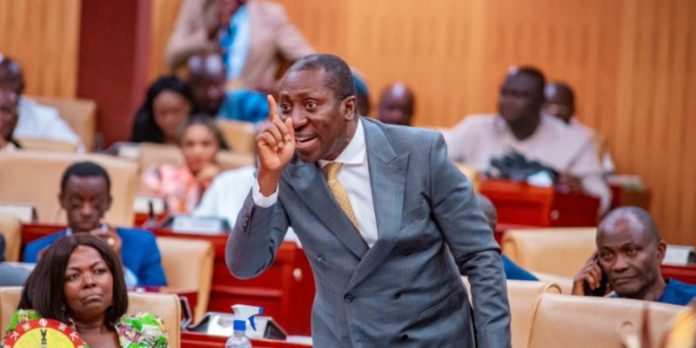We must end Ghana’s $2 billion food import bill — Vice President Naana Opoku-Agyemang

Vice President Jane Naana Opoku Agyemang has reaffirmed Ghana’s commitment to agricultural transformation, emphasising President John Dramani Mahama’s ambitious agenda to make the country self-sufficient in food production.
Speaking as keynote speaker at the closing session of the Norman E. Borlaug International Dialogue, she said the legacy of Dr. Norman Borlaug, the Nobel Peace Prize laureate and father of the Green Revolution, should continue to inspire moral action in the global fight against hunger.
“Dr. Norman Borlaug, who was convinced that no child should go to bed hungry, must remain a moral compass for us,” she stated.
The Vice President underscored the crucial role of agriculture in Ghana’s economy, revealing that almost 40 percent of Ghanaians are engaged in the sector.
However, she noted that despite the country’s favorable climate and potential, Ghana spends “more than USD 2 billion annually importing food we have the climate and capacity to produce,” stressing that “this must change.”
Professor Opoku Agyemang outlined key government interventions, including the Feed Ghana Programme, describing it as “a coordinated, market-driven initiative spanning 22 commodity value chains, including grains and legumes, vegetables, starchy staples, tree crops and livestock.” She explained that the programme is designed “to tackle systemic weaknesses in irrigation, storage and processing, digital integration, cooperative development and market access.”
She also introduced the Grow24 Programme, part of President Mahama’s 24-Hour Economy policy, noting that it “seeks to modernize agriculture and value chains, support agro-manufacturing, and drive export-ready agribusiness.”
In addition, Ghana is implementing “a five-year Agricultural Risk Management Strategy focusing on poultry, tomato and maize in selected regions.”
Highlighting gender disparities in the sector, she stated, “Women constitute more than half of Ghana’s agricultural workforce but face barriers to land, credit, technology and training. Our Women’s Development Bank will help correct these inequities.”
She further noted that government is “investing heavily in youth-led agritech, mechanization services and digital market platforms.”
According to her, Ghana is shifting “from exporting raw materials to producing finished goods that capture real value.” She added, “With AfCFTA headquartered in Accra, we are positioned to build regional value chains, scale agro-exports and empower youth and women across borders.”
The Vice President extended an invitation to “investors, governments, universities, development banks and foundations to partner with Ghana” in driving this transformation.
Following her keynote, she held a “most interesting fireside chat” with Dr. Akinwumi A. Adesina, outgoing President of the African Development Bank, focusing on Ghana’s approach to agriculture and development.
As part of the ceremony’s highlight, she helped present the 2025 World Food Prize to Dr. Marieangela Hungria, a Brazilian agronomist celebrated for her pioneering research on biological nitrogen fixation.
Concluding her remarks, the Vice President called for renewed determination in addressing global hunger.
“The fight against hunger demands thoughtful action,” she said. “We must run our leg of the race with conviction so that Africa becomes food secure, a net exporter of food, a center of innovation, and a beacon of peace.”





